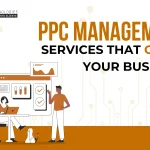To attract nearby consumers in the digital era, local businesses must be highly visible in online searches. Local SEO (Search Engine Optimization) is essential to achieving this objective. Businesses can dominate Google Maps and attract a constant stream of local consumers by implementing effective SEO strategies. In this exhaustive guide, we will lead you through the most important local SEO tips, tricks, and strategies for establishing a solid online presence.
Introduction to Local SEO Tips and Its Significance
Local SEO acts as a compass for firms seeking to attract the attention of their local audience in the wide world of the internet. When prospective buyers look for items or services, they often add location-specific phrases such as “best coffee shop in [city]” or “affordable gyms near me.” Local SEO tips ensure your company’s visibility during these searches, enhancing overall visibility and driving foot traffic.”
Local SEO Tips: Harnessing the Power of Google My Business
Your Google My Business (GMB) profile is an important factor in local SEO performance. The free service allows you to control how your company appears in Google Search and Maps. You can create a solid first impression on prospective buyers by giving accurate information, high-quality photographs, and compelling descriptions. It’s essential to note that adept utilization of GMB stands as a fundamental local SEO tips within the realm of Google My Business.

Optimizing a Google My Business Profile
To start, claim or create your GMB profile if you haven’t already. Fill in all relevant details such as your business name, address, phone number, and website. Ensure that your information is consistent across all platforms.
Complete and Accurate Information
Ensure that your Google My Business profile is complete and accurate, including your business name, address, phone number, and website URL. Consistency is key across all platforms.
High-Quality Images
Upload high-resolution images that showcase your business, products, and services. Use images that accurately represent your offerings and create an inviting visual experience for users.
Engaging Posts
Regularly create posts on your GMB profile. These can include updates, special offers, events, and other relevant content. Posts keep your audience engaged and demonstrate your business’s activity.
Customer Reviews
Inspire clients to rate and review your business on Google My Business. Credibility and local search engine results may both improve with positive reviews. Maintain a level of professionalism while responding to feedback, whether favorable or negative.
Q&A Section
Monitor and respond to questions in the Q&A section of your GMB profile. This helps potential customers find quick answers and demonstrates your commitment to customer service.
Attributes and Services
Utilize GMB’s attributes to highlight specific services or amenities your business offers. Whether it’s free Wi-Fi, outdoor seating, or wheelchair accessibility, providing accurate information helps customers make informed decisions.
Virtual Tour and Videos
If applicable, include a virtual tour of your business or videos that showcase your products or services. Visual content can help customers feel more connected to your business before they visit.
Operating Hours and Special Hours
Keep your operating hours updated, especially during holidays or special occasions. Accurate information ensures that customers know when to visit.
Website and Booking Links
Link your GMB profile to your website and any booking or reservation platforms. Make it easy for customers to take the next step in engaging with your business.
Geotagged Images
When uploading images, ensure they are geotagged with the location of your business. This adds an extra layer of location-specific information that can contribute to your local SEO efforts.
Monitor Insights
Regularly check the insights section of your GMB dashboard. This provides valuable data on how customers are discovering your business.
Conducting a Comprehensive Local SEO Audit
Before starting on any SEO journey, it’s vital to conduct a thorough local SEO audit. This process involves analyzing your website’s structure, content, and technical aspects. By doing so, you can identify and rectify issues that might hinder your local SEO efforts. An audit also helps you implement local SEO tips and tricks tailored to your business’s specific needs.
Steps involved in performing a local SEO audit
Website Analysis
- Evaluate website structure, navigation, and user experience.
- Check for mobile responsiveness and fast loading times.
- Ensure clear call-to-action buttons and easy navigation for users.
Keyword Analysis
- Review existing keywords and assess their relevance to local search.
- Identify location-specific keywords that potential customers might use.
- Analyze keyword rankings and search volume to prioritize optimization efforts.
On-Page Content Audit
- Assess the quality and relevance of existing content.
- Check for proper usage of local keywords in titles, headings, and body text.
- Identify opportunities to create new location-specific content.
Google My Business Audit
- Verify the accuracy of business information on GMB.
- Evaluate the quality and frequency of posts and updates.
- Review customer reviews and respond to them if needed.
Citation Analysis
- Audit local business directories and online listings for consistent NAP (Name, Address, Phone Number) information.
- Identify any duplicate or inaccurate listings and work to correct them.
Backlink Analysis
- Analyze the quality and relevance of backlinks to your website.
- Disavow or remove low-quality or spammy backlinks that might negatively impact your SEO.
Local Schema Markup
- Check if your website uses schema markup to provide searSEO blog tipsch engines with structured data.
- Implement schema markup for local businesses, including business hours, addresses, and reviews.
Competitor Analysis
- Identify local competitors and analyze their online presence.
- Assess their keywords, content strategy, and backlink profile.
- Learn from their successes and shortcomings to refine your own strategy.
Social Media and Online Presence
- Evaluate your social media accounts for consistency and engagement.
- Assess the effectiveness of your online marketing efforts, such as social media campaigns or local events.
Local Reviews and Reputation
- Monitor and analyze online reviews across various platforms.
- Respond to customer feedback and address any negative reviews professionally.
Technical SEO Audit
- Check for broken links, crawl errors, and other technical issues.
- Ensure that your website is indexable and accessible to search engines.
Google Analytics and Search Console Analysis
- Review data in Google Analytics to understand user behavior on your site.
- Utilize Google Search Console to monitor your site’s performance in search results and identify any issues.
Local Link Building Analysis
- Analyze your link-building efforts with a focus on local relevance.
- Identify opportunities for obtaining high-quality local backlinks.
Local Content Strategy
- Develop a plan for creating valuable, location-specific content.
- Identify topics relevant to your local audience and incorporate local keywords.
Identifying and Rectifying Common Local SEO Issues

Inconsistent NAP Information
- Identify variations in your business’s Name, Address, and Phone Number (NAP) across different platforms.
- Rectify inconsistencies by ensuring that NAP information is consistent on your website, Google My Business, and other online directories.
Duplicate Listings
- Search for duplicate listings of your business on various online directories and platforms.
- Claim or merge duplicate listings to prevent confusion among customers and search engines.
Unoptimized Google My Business Profile
- Ensure your GMB profile is complete with accurate business information, categories, and photos.
- Optimize your GMB description and posts with relevant keywords and engaging content.
Lack of Reviews or Poor Reputation
- Encourage satisfied customers to leave positive reviews on platforms like Google, Yelp, and Facebook.
- Respond to both positive and negative reviews promptly and professionally to demonstrate your commitment to customer satisfaction.

Missing or Inaccurate Schema Markup
- Check if your website uses schema markup to provide structured data to search engines.
- Implement local business schema markup to enhance your appearance in search results.
Slow Loading Times
- Use tools to analyze your website’s loading speed and identify factors causing delays.
- Optimize images, leverage browser caching, and consider using a Content Delivery Network (CDN) to improve loading times.
Lack of Mobile-Friendly Design
- Test your website’s mobile responsiveness using mobile-friendly testing tools.
- Make necessary adjustments to ensure that your website provides a seamless experience across all devices.
Ignoring Local Backlinks
- Audit your backlink profile for local relevance and quality.
- Build relationships with local influencers, businesses, and organizations to acquire high-quality local backlinks.
Local SEO Tips for On-Page & Off-Page Success
On-page optimization is crucial in the world of local search engine optimization. Localized keyword use in headers, titles, and body text is an integral part of on-page SEO. Include terms like “best Denver bakery” and “artisanal pastries in Denver” if you’re a Denver-based bakery. This helps your site rank higher in local searches and provides relevant information to people in their area.
Local SEO Tips: Enhancing On-Page Strategies for Businesses
On-page SEO tips play a crucial role in establishing your local digital footprint. By optimizing elements directly on your website, you can align your content with the search intent of local customers.
Location-Optimized Content
Creating content that includes location-specific keywords is essential. Craft informative blog posts, landing pages, and product descriptions that naturally incorporate phrases like “[Your Service] in [Your City].” This not only caters to local search queries but also establishes your business as a local authority.
Title Tags and Meta Descriptions
Customize your title tags and meta descriptions to include relevant keywords along with your location. These elements serve as your website’s first impression in search results, encouraging users to click through and explore your offerings.
Local Structured Data Markup
Implement schema markup to provide search engines with additional context about your business, such as operating hours, reviews, and addresses. This can enhance your search result appearance and increase your chances of attracting clicks.
Local SEO Tips: Enhancing Off-Page Strategies for Businesses
Off-page SEO encompasses external actions impacting your online reputation and authority. These techniques establish credibility and significance within your local community, aligning with essential local SEO tips.

Local Citations and Directories
Ensure your business is listed accurately on local citations and directories, such as Yelp, Yellow Pages, and local Chamber of Commerce websites. Consistent NAP (Name, Address, Phone Number) information across these platforms boosts your effective local SEO efforts through local SEO tips.
High-Quality Backlinks from Local Sources
Earning backlinks from reputable local websites and publications can significantly improve your local search rankings. Engage with local bloggers, participate in community events, or collaborate with local influencers to gain valuable mentions and links.
Social Media Engagement and Local Outreach
Active participation on social media platforms allows you to interact with your local audience directly. Share local news, events, and relevant content, and encourage customers to leave reviews. Engaging with local hashtags and collaborating with nearby businesses can also expand your reach.
Guest Posting on Local Blogs
Writing guest posts for local blogs or news outlets not only showcases your expertise but also introduces your business to a wider local audience. Ensure the content is valuable and informative to establish your authority within the community.
Proven Local SEO Tips and Tricks for Local Domination
Local businesses seeking to establish a dominant online presence within their community can leverage a set of proven Local SEO tips. By implementing these tips and tricks, you’ll position your business as a local authority and drive organic traffic to your doorstep. Let’s delve into some effective local SEO tips:

Encourage Reviews and Ratings
Ask satisfied customers to leave reviews on platforms like Google, Yelp, and industry-specific directories. Positive reviews not only influence potential customers but also improve your local search ranking.
Showcase Customer Success Stories
Share stories of how your products or services have positively impacted your customers. Whether it’s a case study, video testimonial, or written success story, this UGC adds a personal touch to your online presence.
Local Influencer Partnerships
Partnering with local influencers can exponentially expand your reach within the community. Influencers’ endorsements and recommendations can drive traffic to your business and boost your local SEO efforts.
Identify Relevant Local Influencers
Research local influencers in your niche or industry who have a strong local following. Collaborate with those whose values align with your brand.
Co-Create Content
Work with influencers to create content that showcases your products or services. This could include sponsored posts, social media takeovers, or collaborative videos.
Optimize for Voice Search and Featured Snippets
With the rise of voice-activated devices and featured snippets, optimizing for voice search is crucial. Providing concise, clear answers to common local queries can earn you a coveted position in featured snippet results.
Target Long-Tail Keywords
Focus on conversational, long-tail keywords that users might ask in voice searches. Think about how people speak and phrase their queries naturally.
Provide Comprehensive Answers
Create content that directly addresses common local queries. This could include FAQs, how-to guides, and informational blog posts.
Build Local Partnerships and Alliances
Collaborating with other local businesses can create a network that benefits everyone involved. Cross-promotion and joint marketing efforts can amplify your online presence and bolster your local SEO through this local SEO tips.
Identify Complementary Businesses
Look for businesses that cater to a similar target audience but offer different products or services. For example, a gym could partner with a health-focused cafe.
Joint Promotions and Events
Host joint events, workshops, or promotions. Cross-promote these activities on your websites, social media, and newsletters to increase visibility.
Implement Hyperlocal Content Strategies
Creating content that caters to hyperlocal interests can make your business a go-to resource in the community. By addressing local news, events, and trends, you position yourself as an authority.
Cover Local Events and News
Publish articles or videos about local events, news, and developments. Keep your audience informed about what’s happening in their neighborhood.
Interview Local Figures
Feature interviews with local leaders, influencers, or experts. This not only adds value to your content but also encourages these figures to share your content with their networks.
Staying Ahead with Regular SEO Blog Tips
Keeping up a blog is a great method to provide your readers with new and interesting information regularly. Follow SEO blog advice and write about current events, topics, and trends in your area. If you provide landscaping services, for instance, you may discuss regional lawn care trends and seasonal considerations. This not only shows that you are an expert in your field but also that you are relevant to your local audience.
The takeaway here is that you need to take a comprehensive strategy for local SEO if you want to win on Google Maps and in the local search results. By adhering to the guidelines laid forth in this local SEO guide and putting into practice the local SEO tips and tricks most applicable to your company, you can build a strong online presence that attracts local clients.
 seolounge
seolounge



